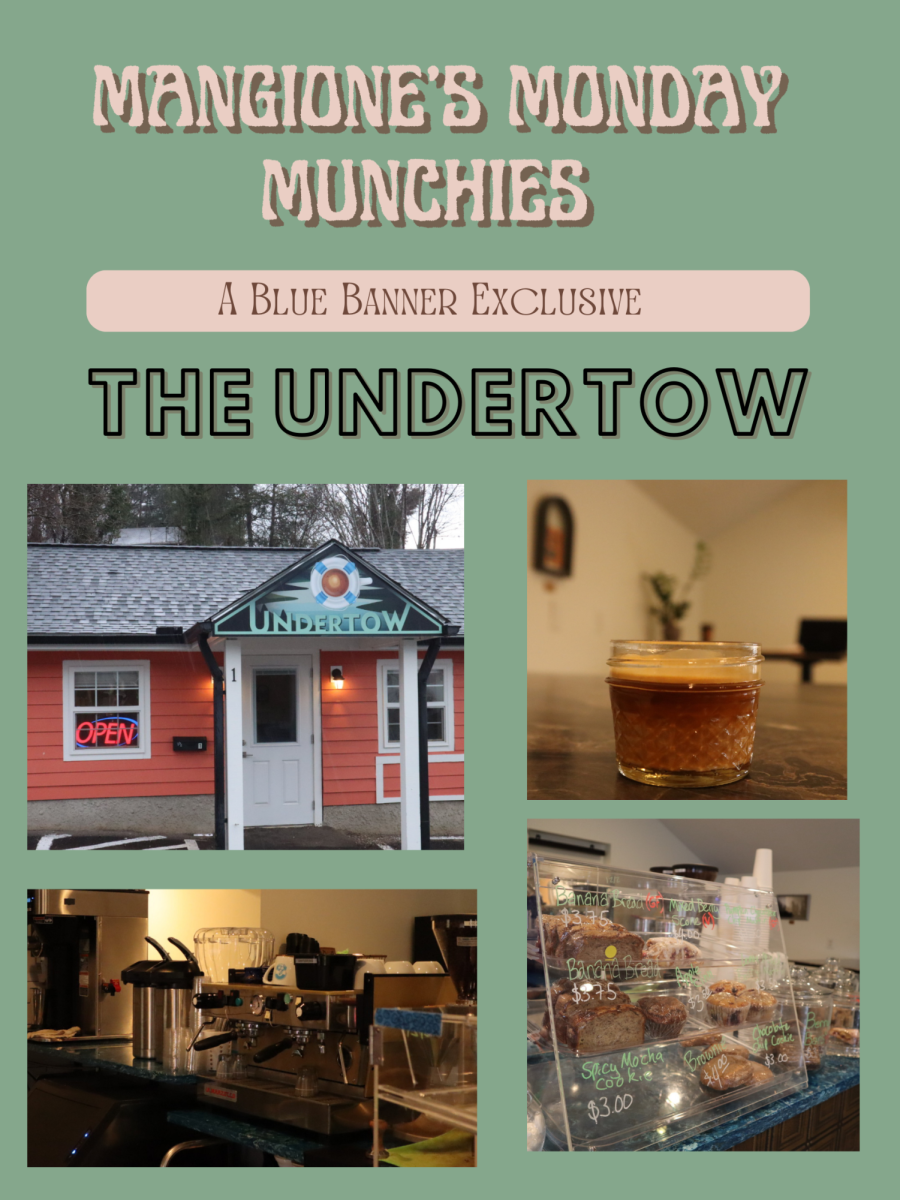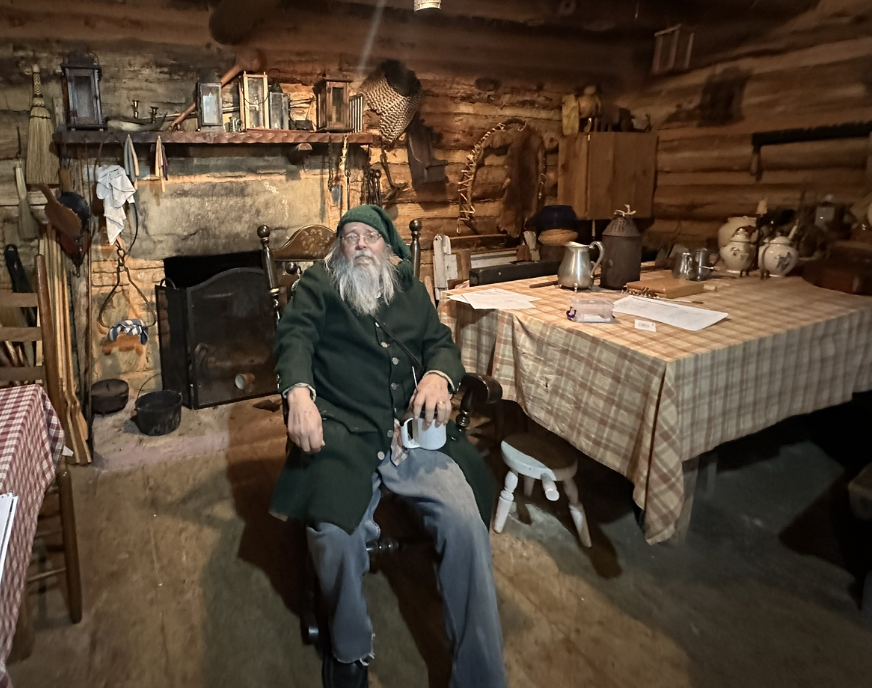By Alex Milstein – [email protected] – Contributor
Teenage girls screamed in horror as an armed tactical unit forcefully burst through the front door last summer, placing Todd Stimson under arrest for multiple drug charges.
Stimson, 43, grew up in Jamestown, N.Y., where he first found marijuana through a cousin. Now residing in Fletcher as a self-employed handyman and machinist, Stimson advocates marijuana in as many ways as he can.
One of the main events that spurred Stimsons interest in marijuana happened in January 1988 when his high school girlfriend ran away from home and later died in a car accident due to alcohol. In May of the same year, his 18-year-old brother Randy also fell victim to a car accident due to alcohol just before shipping out to fulfill his service in the Navy. Stimson’s brother remained in a coma for two weeks and Stimson turned to marijuana as a form of release.
Stimson’s marijuana activism began in 2011 with the down vote of a resolution presented by Milton Byrd in Fletcher to recognize the medical use of marijuana.
“I went and stood up in front of people and thought that it was time to get activated,” Stimson said. “I had been in trouble in 2004 here in Fletcher and was done wrong by the system then. I learned a lot about the system since, and that’s why I know so much now and have taken the steps I have taken at this time.”
Stimson created the Blue Ridge Cannabis Research Corporation to show people the different ways you can be treated with marijuana and how you can regulate it, all while helping the state bring in revenue.
“When they did the resolution in 2011, they were just straight up asking for a compassionate community. The council said that they needed to do more research and that people needed to be more educated. That’s why I set up BRCRC,” Stimson said.
Close to the start of his corporation, he handed out a piece of paper with a picture of him and his two children on it. The paper said: ‘Whose family is going to be affected next by this brutal law? Don’t let it be mine.’
“I wanted to get another resolution going with some solid facts, so I went down to the police chief in Fletcher and told him I had been passing out this picture,” Stimson said. “He says, ‘No, that’s trash. You’re not going to pass that around my neighborhood, not in my city.’ And him saying it’s his city, it’s not – it’s the peoples’ city.”
Stimson said investigations on him started around the time his corporation began and even pro-marijuana organizations initially didn’t want anything to do with him.
According to Stimson, because they now understand what he did, they see it as an act of courage.
Stimson reaches out
“I think what he did was admirable, I think that he is standing up for not only him and his family, but the whole world,” said Noah Ketzenberger, founder of Glassex glass blowing company and co-head of NORML Asheville, the National Organization for the Reform of Marijuana Laws.
“He’s been honest from the get go and he’s been truthful. In my eyes, I think of him as a leader, someone that is willing to take a risk for a better life, and it’s very unfortunate that the government has made us do these things.”
Ketzenberger said the comfort Stimson offers makes people feel they can stand with him.
“If I were to go into war, I’d want to be with him because I
believe what he says and I feel that I can stand with him. I wish that he didn’t have to do these things because the war on drugs is more like a war on people.“
Ketzenberger said he loves America, but American politics no longer remain as reliable as once before.
“He’s fighting the good fight. Every time I’ve ever talked to him, every time I’ve ever worked with him, he’s been kind. He’s been very soft spoken, yet stern and strong. He will not supplement his beliefs for anything. And his beliefs aren’t just his beliefs, they are factual. There are facts to back him up and he knows his stuff.”
Stimson began growing marijuana at his home and a few other different locations around 2011. He bought tax stamps for his crop and hung legal licenses from the N.C. Department of Revenue over his crop of about 2 pounds of marijuana.
His operation was small and his sole aim lay in helping cancer patients and friends. Stimson said buying the tax stamps actually helped state revenue.
“When you pay the tax stamp tax, it’s something like $3.50 per gram, and then about 75 percent of the money goes to your local police department, not the Department of Revenue. So in 2011 when I bought about $1,200 in tax stamps, over $8,000 went back to the local police department.”
“I have heard about cases like this happening, more regularly than we might like to think,” said Rod Kight, owner of Kight Law Offices in Asheville.
“I’m personally in favor of legalizing all marijuana, not just medical, but for recreational use, too. I think his situation is horribly atrocious, especially in this case when someone is trying to be specifically compassionate to the people who need medical marijuana and who need help,” Stimson said.
Kight, now working primarily with bankruptcy law, previously worked as a criminal attorney.
“As a lawyer, I will say he clearly violated the law. It is against the law to grow marijuana. But you have to admire that he was, at least in a way, trying to make it as legal as possible and trying to comply with the law.”
Kight said Stimson may not face as harsh of charges because of his use of tax stamps.
“From a pure technical standpoint, I’ve had clients who, in addition to being charged criminally, also have to pay the taxes because they didn’t pay the taxes along the way. So if he paid the taxes, then presumably at the very least they won’t make him pay taxes.”
Stimson made it clear he planned to grow and sell marijuana when applying for licenses and while setting up his website, yet no one did anything to stop him.
“I straight out told the government what I was doing,” Stimson said. “I was growing marijuana, I was paying taxes, I even had my privilege license for art of healing. So I wasn’t hiding anything back then, and I never was hiding anything.”
Stimson said the police chief of Fletcher even referred to him as “Mr. Marijuana” in an email, so they knew exactly who he was.
“Do I think what Todd is doing is right or wrong?” said James “Ziggie” McLemore, a cancer patient of Stimson’s. “I think he’s a saint.”
In 2011, doctors diagnosed McLemore, then 39, with inoperable, stage three lung cancer. The doctors told McLemore to get his affairs in order, as he did not have long to live. The doctors also told McLemore that with treatment there stood only a 20 percent chance of him living while becoming addicted to opiates, using feeding tubes and losing weight while being hospitalized for the duration of the treatment.
“The doctors asked if I even wanted to try treatment, at which point I responded, ‘If the cancer wants me, it’s gonna relax or it’s going to come kick my ass.’ Well I told them I would not do their opiates and that opiates were wrong. I lost my father in 2001 to brain cancer and I lost my mother to diabetes. After which I started doing some research and realized that cannabis could have helped both of them.”
McLemore told doctors he preferred to use cannabis, and they could not argue or stop him. He immediately started eating and juicing the raw plant material, as well as vaporizing cannabis that he obtained from Stimson.
“Todd provided me with plant materials, such as sweet leaves, to juice and eat and make butter with. Well the doctors told me I had a 20 percent chance of making it to remission and if I did make it to remission not to get my hopes up. They said I would have a year and a half maximum before it came back and hit me in at least three places: the brain, adrenal gland and the liver.”
McLemore said he never once took their pain pills, never once threw up and when his doctor pronounced him in remission, they said they never saw anyone gain weight while undergoing the chemotherapy they put him through.
McLemore made it through remission, and while told he would still only have months to live, he lives today and still uses cannabis products whenever he can. He claims cannabis saved his life.
The raid begins
Almost three years after Stimson created the cannabis research corporation, police raided his home.
“The day of the raid, we had just gotten back from buying tulips for my daughter’s garden,” Stimson said. “My daughter had a few friends over, and when they heard a car pull in, they looked out at saw a cop car with it’s lights flashing. I pretty much knew right away what they were there for. To tell you the truth, I expected them to come back in 2011 when they first found out about me through BRMCRC. “
When the police arrived, Stimson went out the side door, straight toward the chief. About half way up the hill to where the chief stood, Stimson heard screams of terror from inside the house. The armed tactical unit loaded in with assault rifles and pointed them at the teenage girls on the couch.
Charges included manufacturing a controlled substance, felony marijuana possession, possession with intent to sell and deliver marijuana, possession of drug paraphernalia and maintaining a place for controlled substances.
They had approximately 50 Fletcher police and tactical unit officers in total, as well as a DEA agent, and according to Stimson, they made it a big deal.
“One of the reasons I think they came in the way that they did was because one of my last posts on my website, called Civil Courage, had said, ‘I can do what’s right, I can fight for what’s right. I can do it, I will not fear their might,’ and I think they wanted to make somebody who stands up and says stuff like that fear authority.”
Stimson said states enforce different scheduling for drugs, classifying marijuana as a Schedule 6 drug indicating low potential for abuse or addiction.
“This scheduling means that it’s a low public safety issue, so even the state statute says it isn’t a public safety issue, yet they turned it into such a big issue when they came, especially since they knew about me in 2011. They were very aggressive.”
The federal government deems tax stamps on marijuana – in the states that accept tax stamps – unconstitutional. Stimson followed the strict codes which accompanied the stamps, but it remained unconstitutional.
“It’s unconstitutional because it’s been found to be a punitive damage and so you’re punished at the tax aspect and you’re punished at the criminal aspect, so thats where the double jeopardy comes in, which makes it unconstitutional. The state was complicit with my requests. When you look at the charges against me, it says I’m the defendant and the state is the victim. How can the state be the victim when the state was accepting my tax money?”
Stimson said if you do not have tax stamps on your package or your plant, you get fined 100 percent of the cost. If you fail to pay the original fine within 48 hours, a 50 percent fine is added. That’s an automatic 150 percent fine for not having tax stamps.
“Everything is verbal precision when it comes to the law, and how they do it with the tax stamps is that they say you are not required to fill out your name or address, but that doesn’t make any sense. Why would anyone send in money for tax stamps and not put their name or address on it?”
The state of North Carolina classifies the growing of cannabis as a felony, especially without purchasing tax stamps.
“It’s even more unconstitutional because it says if you have or grow marijuana, you must to have these tax stamps attached to it. But you’re not supposed to have it to begin with. But if you do have it, you’re supposed to have it with the tax stamps. It really makes no sense.”
Stimson said the best way to fight government laws and regulations begins with education and works effectively by using their words against them.
“The most recent thing I have found is out of the North Carolina Medical Board, which is overall the doctors in North Carolina, they have a current position statement on controlled substances which says that appropriate treatment is a physician’s responsibility, yet inappropriate treatment and results in the lack of knowledge of the doctor can result from fear of investigations by federal, state or local agencies. And that’s where our doctors aren’t holding up to the appropriate treatment of patients, because they are afraid of if they were to recommend cannabis.”
Stimson said fear and misinformation serve as important issues when dealing with marijuana legalization, but he cannot tell people how to overcome the fear. Overcoming this fear plays a key role in the battle for legalization.
”It’s a big, big thing, and that fear is holding us back. But there are people out there that are already labeled that aren’t afraid of standing up. That’s how I look at it. I’m already labeled, so why not stand up and try to make a difference?”
Stimson said a lot of people just don’t know about who they need to really talk to and petition, and looking deep down into the statute leads to answers.
“There are only two people that can reschedule marijuana at the federal level, and that’s the attorney general and the secretary of health and human services. Nobody has petitioned them specifically, they have gotten close, but you have to have your words right or else it’s all null and void.”
“The people who make up these statutes and laws are people just like us. They are not superhuman or anything like that. If they can read and make up things, we can do it just as much. Potheads are not the people they would want us to believe. Educate. Educate and the truth will be known,” he said.
Life goes on
In November, just months after Stimson’s arrest, doctors diagnosed his teenage daughter Ariel with cancer.
“When we found out about her cancer, I started going deep into the National Institute of Health. There is a department of this called the National Center for Complementary and Alternative Medicine.”
Complementary medicine refers to medicine that goes along with standard procedures while alternative medicine refers to something you’re going to do by yourself.
“My daughter needs the THC part of marijuana, which is one of 85 different cannabinoids found in marijuana. We said from the start that we wanted cannabinoids for our daughter. The first day that she went in for chemo they said they couldn’t give her cannabinoids, but would instead give her three different anti-nausea medications.”
Stimson said he wanted cannabinoids for Ariel because of her many allergies to certain types of medicine.
“We were not comfortable with her taking them. We wanted cannabinoids, so I said ‘If you would grow some balls and put in the application for this, we can be on our way.’ He shut it down right then and sent us away. When we went back for her chemo again, they still had her take these three medications, just one of which had about 142 adverse reactions.”
According to Stimson, the doctor needed to do some simple paperwork in order to get the cannabinoids for Ariel, but fear came into play. The paperwork was legal, but the doctor feared for his reputation if he issued marijuana to a teenager.
“So the next day, I was woken up to my wife telling me child protective services had been called on us, and they were coming. Just because of us requesting marijuana for our daughter, through a legal program, the doctor called protective services on us. We’ve been through a lot from the cancer alone, and to see what cannabis does for her compared to other medicines is just in itself a miracle.”
Stimson now hits town councils and town meetings to try and hold representatives to their word. One of the most recent endeavors pertains to felony disenfranchisement, which Stimson discussed with Lieutenant Governor Dan Forest.
“He agreed with me that if the crime is non-violent, once you do your time, you should no longer be labeled as a felon. If we can get the felony disenfranchisement gone, then we can participate back into the voting process, we won’t have as much trouble finding a job. And now in North Carolina when you’re convicted of a felony you lose your drivers license, too. You can’t assimilate back into society like you should be able to and that’s a huge problem.”


















Dane82 • May 1, 2017 at 1:01 pm
I see you don’t monetize your blog. You can earn extra income,
your niche is good for one method, just search in google – reselling online by Riggso